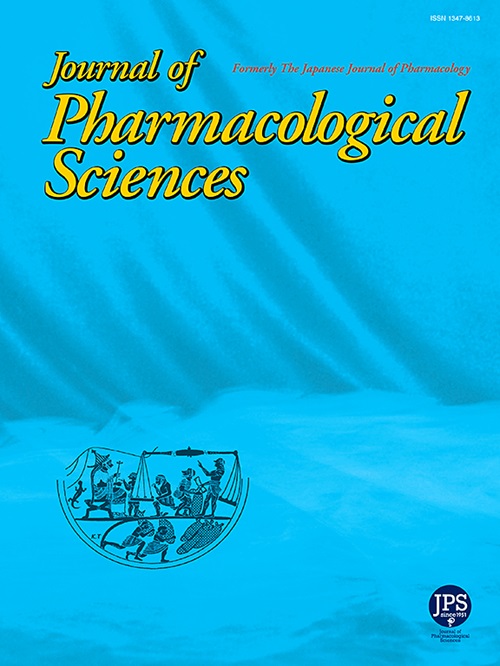Tomatidine attenuates post-stroke cognitive impairment by reducing neuroinflammation through prevention of M1 microglial polarization via NF-κB signaling
IF 2.9
3区 医学
Q2 PHARMACOLOGY & PHARMACY
引用次数: 0
Abstract
Post-stroke cognitive impairment (PSCI) is a clinical disorder that commonly occurs after a stroke and may persist long-term in most stroke survivors. Neuroinflammation involving proinflammatory M1 microglia, an activated microglial phenotype after stroke injury, is a major risk factor for PSCI. Tomatidine is a steroidal alkaloid of immature green tomatoes that has anti-inflammatory properties. To investigate the effects of tomatidine on cognitive impairment and microglial-associated neuroinflammation after stroke, we performed behavioral experiments and analyses on activated microglia in a transient bilateral common carotid arteries occlusion (tBCCAO) mouse model. Tomatidine attenuated cognitive impairment and neurodegeneration in the CA1 and CA3 hippocampal regions and reduced microglial activation and polarization into an M1 phenotype in the hippocampus in tBCCAO mice. The direct effect of tomatidine on polarization into the M1 phenotype was examined using LPS-stimulated BV2 microglia, as an M1 microglia model. Tomatidine reduced expression of M1 microglial markers and inflammatory mediators and inhibited nuclear translocation and phosphorylation of NF-κB in LPS-treated BV2 microglia. These results suggest that tomatidine suppresses microglial polarization into an M1 phenotype via modulation of NF-κB signaling, resulting in attenuation of neuroinflammation and reduction of PSCI.
番茄碱通过NF-κB信号传导预防M1小胶质细胞极化,减轻神经炎症,从而减轻脑卒中后认知障碍
脑卒中后认知障碍(PSCI)是一种临床障碍,通常发生在脑卒中后,并可能在大多数脑卒中幸存者中长期存在。神经炎症涉及促炎性M1小胶质细胞,这是卒中损伤后激活的小胶质细胞表型,是PSCI的主要危险因素。番茄碱是一种从未成熟的绿色番茄中提取的甾体生物碱,具有抗炎特性。为了研究番茄碱对脑卒中后认知功能障碍和小胶质细胞相关神经炎症的影响,我们在短暂性双侧颈总动脉闭塞(tBCCAO)小鼠模型中对激活的小胶质细胞进行了行为实验和分析。番茄碱减轻了tBCCAO小鼠海马CA1和CA3区的认知障碍和神经退行性变,并减少了海马小胶质细胞的激活和向M1表型的极化。利用lps刺激的BV2小胶质细胞作为M1小胶质细胞模型,研究了番茄碱对M1表型极化的直接影响。番茄碱降低lps处理的BV2小胶质细胞M1标记物和炎症介质的表达,抑制核易位和NF-κB的磷酸化。这些结果表明,番茄碱通过调节NF-κB信号传导抑制小胶质细胞极化为M1表型,导致神经炎症的衰减和PSCI的减少。
本文章由计算机程序翻译,如有差异,请以英文原文为准。
求助全文
约1分钟内获得全文
求助全文
来源期刊
CiteScore
6.20
自引率
2.90%
发文量
104
审稿时长
31 days
期刊介绍:
Journal of Pharmacological Sciences (JPS) is an international open access journal intended for the advancement of pharmacological sciences in the world. The Journal welcomes submissions in all fields of experimental and clinical pharmacology, including neuroscience, and biochemical, cellular, and molecular pharmacology for publication as Reviews, Full Papers or Short Communications. Short Communications are short research article intended to provide novel and exciting pharmacological findings. Manuscripts concerning descriptive case reports, pharmacokinetic and pharmacodynamic studies without pharmacological mechanism and dose-response determinations are not acceptable and will be rejected without peer review. The ethnopharmacological studies are also out of the scope of this journal. Furthermore, JPS does not publish work on the actions of biological extracts unknown chemical composition.

 求助内容:
求助内容: 应助结果提醒方式:
应助结果提醒方式:


